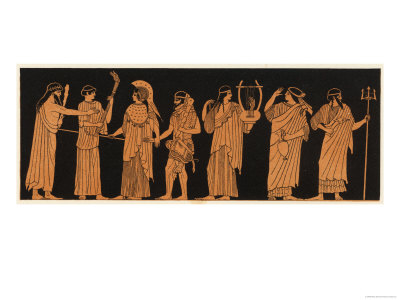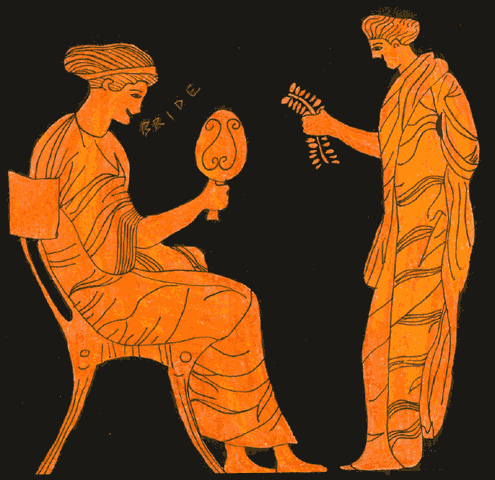Ancient Greek marriages were arranged by the parents of the intended bride and groom. Marriage consisted of a private contract where the woman was transferred to her husband. Marriage consisted of transfer and transformation. Transformation means actually giving the responsibility of the woman to the man/husband.

Types of Marriages
There were two basic types of marriages that provided legitimate offspring. In one, the male legal guardian (Kurios) who had charge of the woman arranged her marriage partner. This type of marriage is called Enguesis ‘betrothal’. If a woman was an heiress without a Kurios, she was called an Epiikleros and might be re-married by the marriage form known as Epidikasia.
Wedding Ceremony
The wedding ceremony usually lasted three days. The day before the wedding was designated the Proaulia. In preparation for the Proaulia, the bride would spend a final few days with her mother and female relatives, friends and servants preparing for her wedding at her father’s house.

Greek Wedding Tradition
Various types of rituals are followed in the traditional ancient Greek wedding ceremony. Both the bride and groom take bath in the holy spring. A specially appointed child carried the bath water, which was thought to provide a purification of the bride as well as to induce fertility, showing that the bride and her sexual initiation were the focus of this aspect of the ceremony. Gifts to the new couple might include baskets, furniture, jewelry, mirrors, perfume, and vases filled with greenery.

The Dowry
The dowry was an important provision for the woman since she would not inherit her husband’s property. A financial arrangement was made between the families in the form of a dowry.Girls married between the ages of fourteen to eighteen, while typically men married in their twenties or even thirties. Because the girls were so young, they did not have much choice about who they were going to marry.
Their fathers or uncles or brothers chose for them. Often girls had not even met the man they married before the wedding.Divorces were easily arranged. The man would have to pay back, in cash, the remaining dowry money to his wife parents.